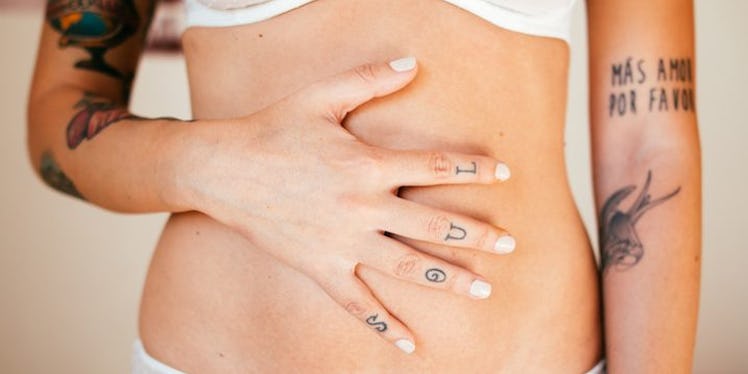
Why You Might Want To Start Thinking About Freezing Your Eggs In Your 20s
A few weeks ago, former "Bachelor" and "Bachelorette" contestant Kaitlyn Bristowe talked about why she chose to freeze her eggs.
She explained,
I'm taking control of my future. As a woman, there's always so much pressure to have babies, and this puts my mind at ease for when I'M ready.
While the societal pressure for women to have children has been significantly decreased, for many of us, the limitations of our body's fertility is pressure enough.
So, Elite Daily spoke to
Dr. Dan Shapiro from proactive fertility preservation company, Prelude about why a woman in her 20s might want to start thinking about egg freezing, and how it might help relieve some of that pressure.
According to Dr. Shapiro,
You should start thinking about freezing your eggs as you start your adult years, and definitely under 35. A woman's eggs have an expiration date, only most don't know it. A woman is born with all of her eggs, and they are depleted throughout her lifetime, and they lose quality as the years go by, so the sooner a woman freezes her eggs (or starts a family) the more likely she is to have children without too much difficulty and have the family size she wants.
OK, so our eggs are dying, but hey, at least there's something we can do about it!
That being said, egg freezing can be expensive.
Right now, freezing your eggs costs about 10 thousand dollars per cycle — of which you may need to do several cycles, in order to retrieve a sufficient number of eggs — and insurance may or may not even cover it. Of that ten grand, often you have to come up with an initial down payment of a couple grand up front.
The initial medical consultations and mandated genetic testing can cost you an additional thousand or so dollars. What's more, if you opt to freeze embryos (fertilized eggs) and use a sperm bank to do so, sperm can cost around another thousand dollars.
Often insurance pays for the hormone meds, which can run up to 5 thousand dollars, but not the egg freezing itself. Storing the eggs can cost about another $600- a year, every year, until you use them.
And if and when you do decide to use the eggs, the "final embryo transfer" is another cost: actually getting pregnant can be another ten grand or more.
Because of the astronomical cost of these procedures, some women are asking their parents to help them out financially.
So how does one go about asking their parents for help freezing their eggs?
Dr. Shapiro suggests it's no different than any other gift given by a parent that centers around investing in their child's future.
Shapiro tells Elite Daily,
Parents often give major gifts for their children as they transition into adult years – like a car, continuing education, or more. Egg freezing is a beautiful gift to help continue your family line and give you a best shot of continuing their legacy in case you need the eggs in the future.
But what's actually involved in the process?
Well, a lot of hormones, in case you were in need of more. (Pause for eye-rolls.)
Basically, weeks before the egg retrieval process, doctors pump you full of hormones that you'll need to inject yourself at home.
Shapiro says,
Almost all the injections during stimulation are low volume and use tiny needles, which can be injected anywhere there is skin… typically in the belly near the belly button. These shots don't hurt. Because the volumes are so small, many patients may not feel the injection at all and start worrying that they didn't actually get the medicine when of course, they did.
In fact, these injections are so easy, they can be learned by watching a simple online tutorial.
Shapiro indicated that the egg retrieval process is slightly more varied experientially, saying,
During the egg retrieval process, the woman will receive light IV sedation, but may have some discomfort afterwards. Everyone's experience is different. While most women are able to return to work the next day, some may need an additional day to recover.
You may not even be thinking about having kids, and you may have already decided that you are against having them.
However, life has a way of changing our perspectives (sometimes), and since we're living in an age where we can keep our options open, it's nice to know this one's out there.